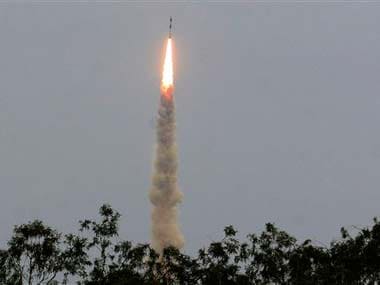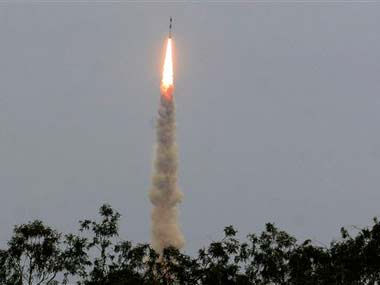On Tuesday India lost its arbitration case in an international tribunal against Bengaluru-based Devas Multimedia Private Ltd for cancelling its space/satellite contract with the government-owned Antrix Corporation. This is the second international tribunal to rule against the Indian government in the Antrix-Devas scam, and questions how the government will react to the judgment especially since it was trying to avoid a potentially dangerous scam when it cancelled its deal with Devas in 2011. In the earlier decision in 2015, the International Chamber of Commerce (ICC) tribunal found unanimously that Antrix’s repudiation of the contract was unlawful, and awarded Devas damages and pre-award interest of approximately 672 million US dollars, plus post-award annual interest accruing at 18 percent until the award is paid in full. In a statement, Devas said, “A Permanent Court of Arbitration tribunal has found that the government of India’s actions in annulling a contract between Devas and Antrix Corporation Ltd, and denying Devas commercial use of S-band spectrum, constituted an expropriation.” The Hague-based tribunal, which regularly takes cases involving states, including investment treaty claims brought under arbitration rules of the United Nations Commission on International Trade Law (UNCITRAL), also found that India breached its treaty commitments to accord fair and equitable treatment to Devas’s foreign investors. [caption id=“attachment_2918450” align=“alignleft” width=“380”]  Representational image. AP[/caption] 15 things you should know about this deal: 1. The Antrix-Devas scam is one of the most serious crisis Isro has faced in its history. The other one was when in 1994 two of Isro’s scientists were accused of espionage. The charges were dropped afterwards as the accusation turned out to be false. 2. The deal between Antrix and Devas was signed in 2005 when G Madhavan Nair was at the helm of affairs in the Department of Space (DoS). He later blamed the UPA-2 government for things going south in the deal. 3. As per the agreement, Antrix was to provide 70 MHz of the scarce S-Band space segment to Devas for its digital multimedia services. Antrix was to lease satellite transponders to Devas for allowing it to offer digital multimedia services using the S-band wavelength (spectrum), reserved for strategic purpose. 4. This was to be done by leasing 90 percent of the transponders in satellites GSAT-6 and GSAT-6A that are proposed to be launched by Isro. Devas, in turn, was to pay Antrix a total of 300 million US dollars over 12 years. The aim of the project was to provide broadband wireless services to the remote areas of India. 5. However, the deal failed to take off, as the then Manmohan Singh-led government in 2011 said the project was already under review and action has been initiated for termination of the contract. 6. The scandal first came to light when in 2011, The Hindu reported that there were some irregularities in the agreement between Antrix and Devas. They reported the findings of a draft audit report and pointed out discrepancies including financial mismanagement, conflict of interest, non-compliance of rules, and favouritism. This revelation came at the heel of the 2G spectrum scam which was condemned for the high-level of corruption. 7. The government finally cancelled the deal on 17 February, 2011. Devas then took Antrix and the Government to International Court for cancelling its contract by the Cabinet Committee on Security in 2011. 8. After arbitration proceeding began in June 2013, Devas claimed $1.6 billion in damages. 9. Antrix filed an arbitration suit in Bengaluru in November 2015 against the September 2015 order of the ICC arbitration court asking Antrix to pay damages of $672 million to Devas Multimedia. 10. The Department of Space (DoS), in a statement, said that in the award, issued on “jurisdiction and merits on 25 July, 2016”, the tribunal has said that the Indian government’s essential security interest provisions “do apply in this case to an extent” and the “limited liability of compensation shall be limited to 40 percent of the value of the investment” but the precise quantum has not been determined as yet. 11. Devas Multimedia is suspected to have received foreign direct investment (FDI) of Rs 578.54 crore between May 2006 and June 2010 from various overseas investors, but the share subscription agreements it entered with them contained clauses contrary to the conditions specified in the approvals granted by Foreign Investment Promotion Board. 12. Devas Multimedia was also charged with contravening the FDI regulations under Fema for assuring foreign investors an annual eight per cent priority dividend in addition to other dividends on cumulative basis, and for one tranche of receipt of funds, issuing a security akin to an External Commercial Borrowing (ECB) promising higher returns than the ceiling fixed by the Reserve Bank of India. 13. The Department of Space said that the Central Bureau of Investigation (CBI) has filed an FIR against Devas and other unknown public servants of Antrix/Isro/DoS and it is presently under investigation. 14. The Enforcement Directorate (ED) has launched an investigation against Devas and its directors and foreign subsidiaries under Prevention of Money Laundering Act (PMLA) and Foreign Exchange Management Act (Fema). 15. Antrix was set up in 1992 to commercialise space products, and was also used as a channel for the transfer of technology. Devas Multimedia was set up by former space engineers from Isro and then was funded by foreign investors some of them from Mauritius. With inputs from agenices
On Tuesday India lost its arbitration case in an international tribunal against Bengaluru-based Devas Multimedia Private Ltd for cancelling its space/satellite contract with the government-owned Antrix Corporation, Devas said.
Advertisement
End of Article


)

)
)
)
)
)
)
)
)



